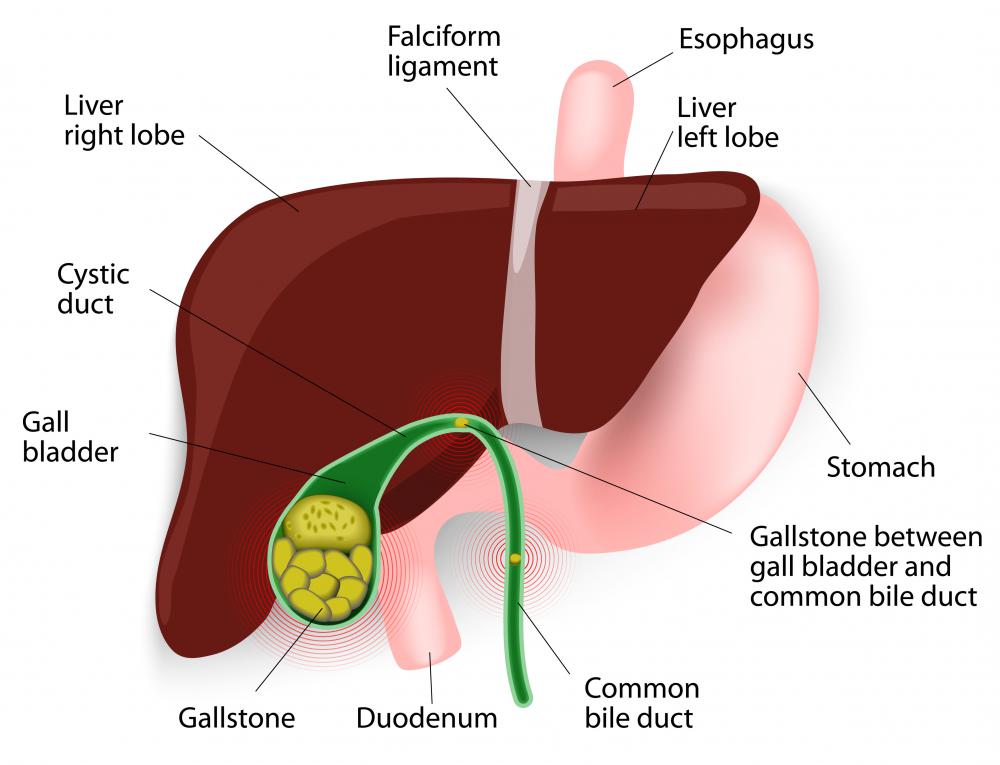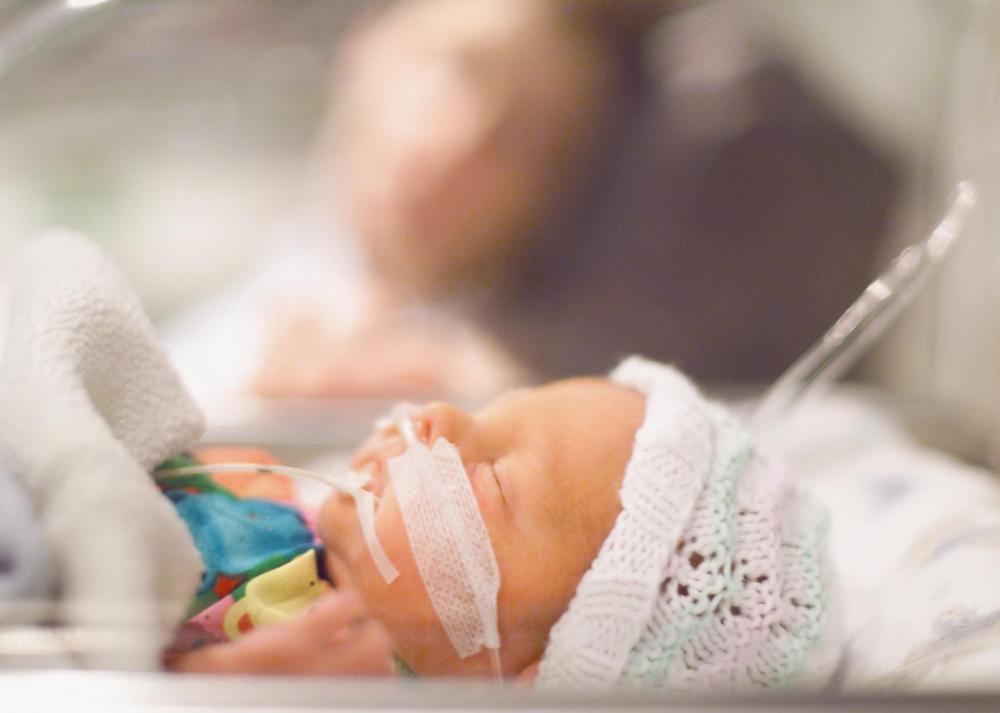At WiseGEEK, we're committed to delivering accurate, trustworthy information. Our expert-authored content is rigorously fact-checked and sourced from credible authorities. Discover how we uphold the highest standards in providing you with reliable knowledge.
What are the Symptoms of Jaundice?
The most recognizable symptom of jaundice is a yellow, orange, or greenish discoloration of the skin, whites of the eyes, mucous membranes, and bodily fluids caused by the accumulation of bile pigment. Other symptoms of jaundice include pale brown feces and itching. The itching, or pruritis, can sometimes become quite severe and cause the patient to scratch until sores appear. Jaundice is usually a symptom of a more serious illness and is not a disease. It is best to check for symptoms of jaundice in sunlight, as the pigmentation can be difficult to see in artificial light.
The liver removes waste products and toxins from hemoglobin, an oxygen carrying protein and pigment found in red blood cells. Hemolysis is the destruction of red blood cells and the release of hemoglobin into the blood stream. Bilirubin is the waste product that results from destroyed cells and waste produced by hemoglobin.

The waste product bilirubin is a bile pigment, and gives feces its brown color. The liver cleans the bilirubin out of the blood and produces bile. Bile is a greenish or yellowish alkaline fluid secreted by the liver that contains waste products ready for elimination. Bile is stored in the gall bladder, which expels it into the duodenum, the upper portion of the small intestine, where it is absorbed by fats and passed out of the body in feces.

There are three forms of jaundice: obstructive, hepatocellular, and hemolytic. Obstructive jaundice is caused by some form of obstruction—gall stones or cancer—that prevents the bile produced from reaching the intestines. The term hepatocellular refers to the cells of the liver. Hepatocellular jaundice occurs when liver cells are damaged or diseased and are unable to process bilirubin, causing it to accumulate in the blood stream.

Hemolytic jaundice is the result of high bilirubin levels in the blood due to hemolysis. These high levels of waste produce exceed the liver's ability to process and transport it, and can cause the symptoms of jaundice. Newborn babies often show symptoms of hemolytic jaundice.
Newborns can develop jaundice two to five after birth, because the liver has not fully matured. The condition is known as neonatal or physiological jaundice. After a baby is born, the fetal red blood cells are destroyed and are replaced with blood cells similar to an adult. The immature liver cannot process all of the bilirubin, and the symptoms of jaundice appear. Jaundice appears in more than half of all babies.

Neonatal jaundice is normal and does not harm the baby. It disappears once the liver matures. If symptoms of jaundice are present at birth, however, then it may be caused by a far more serious issue. Some congenital defects may impair the removal of bile or cause an excess to be produced.
AS FEATURED ON:
AS FEATURED ON:

















Discuss this Article
Post your comments